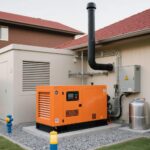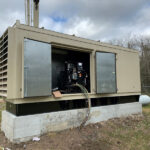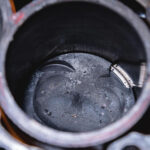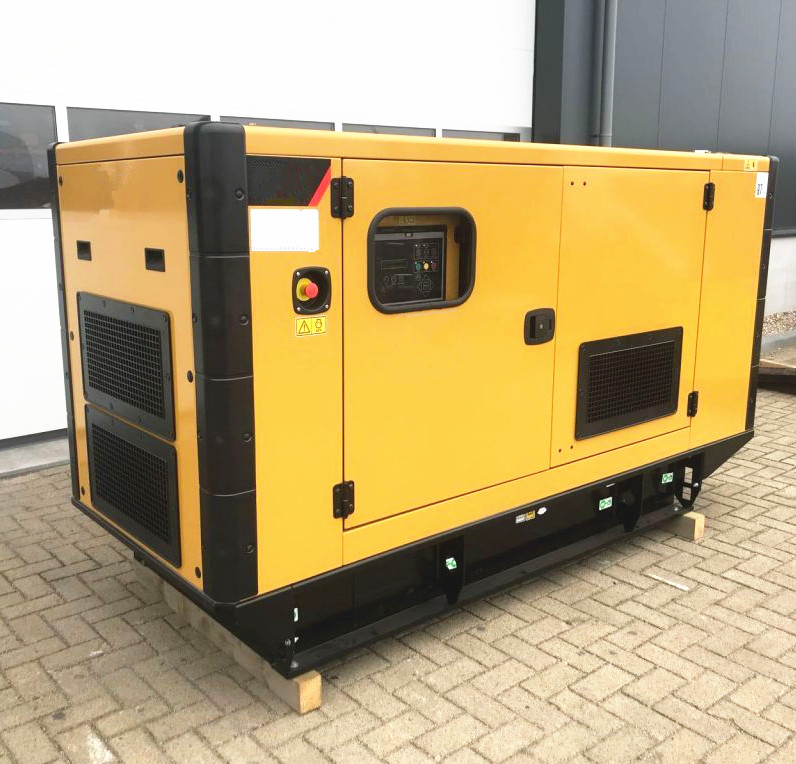
When people talk about backup power, they often use "genset" and "generator" interchangeably. But are they really the same? If you're in the market for a power solution, knowing the difference matters.
A generator refers to the device that converts mechanical energy into electrical energy, while a genset (generator set) includes the generator along with an engine and other components necessary for operation.
Many buyers get confused when manufacturers list "gensets" instead of "generators." Understanding the distinction can help you choose the right equipment for your needs. Let’s break it down.
What is a generator?
When a power outage happens, you need electricity. But what exactly is a generator, and how does it work?
A generator is a machine that converts mechanical energy into electrical energy. It consists mainly of a rotor and a stator, which work together to produce electricity.
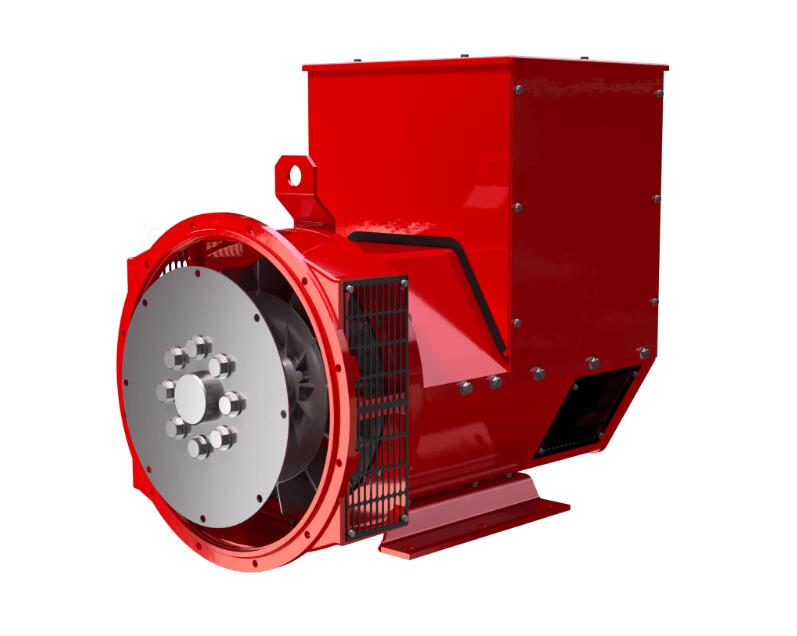
How does a generator produce electricity?
A generator does not create electricity on its own. Instead, it transforms energy from another source, usually mechanical energy from an engine or turbine. The basic working principle is electromagnetic induction:
- Mechanical input – A rotating shaft moves inside the generator.
- Magnetic field interaction – The rotor (moving part) spins inside the stator (stationary part), generating an electric current.
- Output power – The generated electricity is then used to power devices.
Generators come in different sizes and are used in various applications, from small portable units to large industrial systems. However, a generator alone is not enough to produce usable power—it needs an external engine or prime mover.
What is a genset?
If a generator isn't enough on its own, what makes a genset different?
A genset, or generator set, is a complete system that includes a generator, an engine (usually diesel or gas-powered), a fuel system, a control panel, and other essential components.
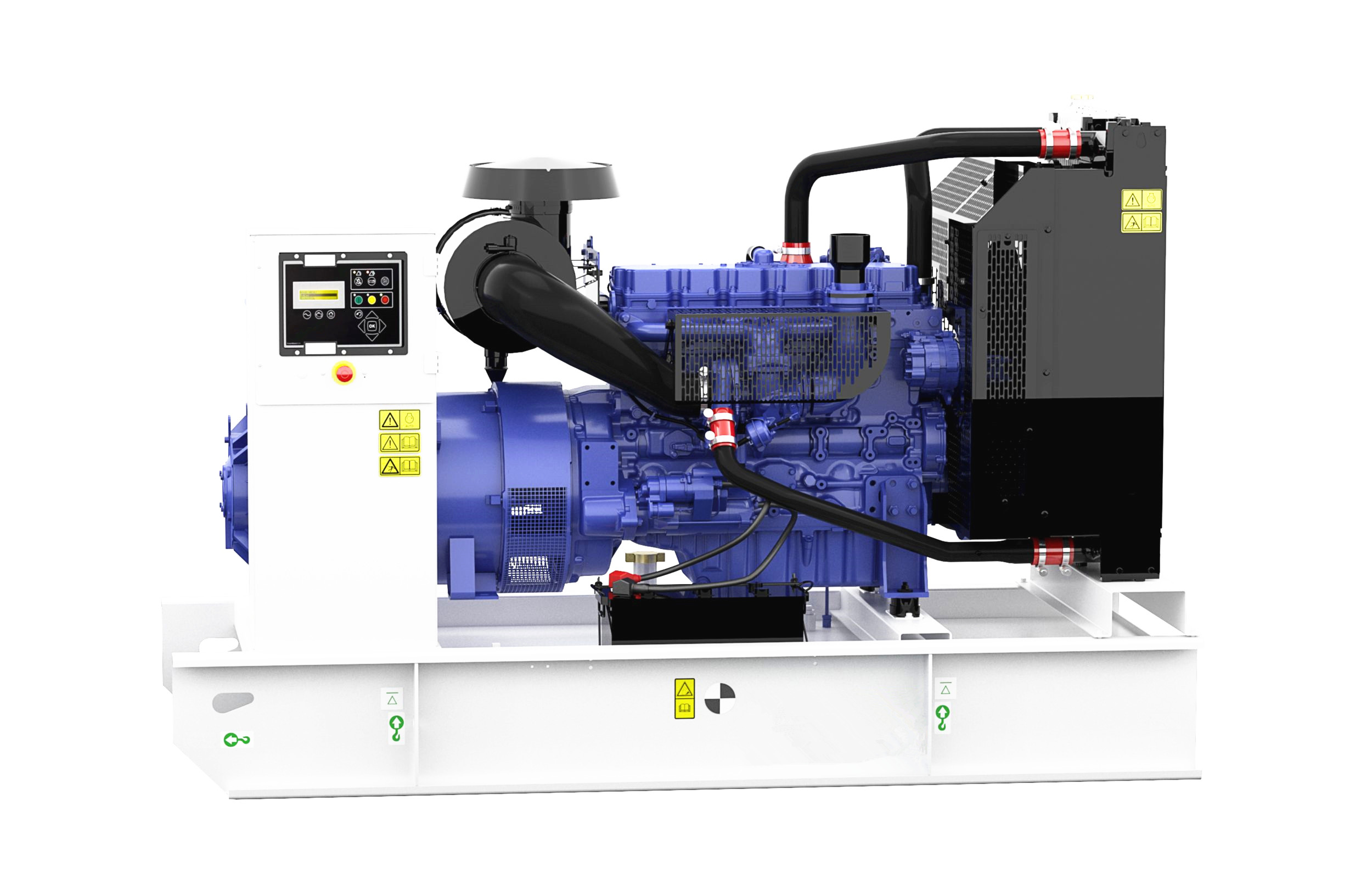
What are the main components of a genset?
A generator set consists of several key parts:
| Component | Function |
|---|---|
| Engine | Provides mechanical energy to the generator |
| Generator (Alternator) | Converts mechanical energy into electrical energy |
| Fuel System | Supplies fuel to the engine |
| Control Panel | Manages power output and monitors performance |
| Cooling System | Prevents overheating during operation |
| Exhaust System | Removes emissions produced by the engine |
| Battery & Starter | Initiates the engine when needed |
A genset is a self-contained power solution that can operate independently, making it ideal for backup power, construction sites, and remote areas.
How do gensets and generators compare?
Some people use the terms "genset" and "generator" interchangeably, but that can lead to misunderstandings.
A generator is just one component of a genset. A genset is a complete system that includes a generator and an engine, making it a functional power unit.
Key differences between gensets and generators
| Feature | Generator | Genset |
|---|---|---|
| Main Function | Converts mechanical energy into electricity | Provides a complete power solution |
| Engine Included? | No | Yes |
| Fuel System? | No | Yes |
| Control Panel? | No | Yes |
| Usability | Requires an external power source | Can function independently |
Which one should you choose?
If you need power, should you buy a generator or a genset?
If you already have a prime mover (like a turbine or engine), you may only need a generator. If you need a complete, self-sufficient power solution, a genset is the better option.
When to choose a generator
- If you are replacing an existing generator in a larger system
- If you have a separate engine or power source
- If you need a custom power solution with specific components
When to choose a genset
- If you need a complete power system
- If you require backup power for homes, businesses, or industries
- If you want a plug-and-play solution with everything included
Conclusion
A generator converts mechanical energy into electricity, while a genset is a complete system that includes an engine, generator, and other necessary components. If you need a self-sufficient power solution, a genset is the best choice.
Buying And Technical Contact
You can contact us in many ways:
You can go to our website (URL: https://waltpower.com/contact/) and drop us a message.
You can email us:
Our Contact is: +8618717996108 (WhatsApp)


